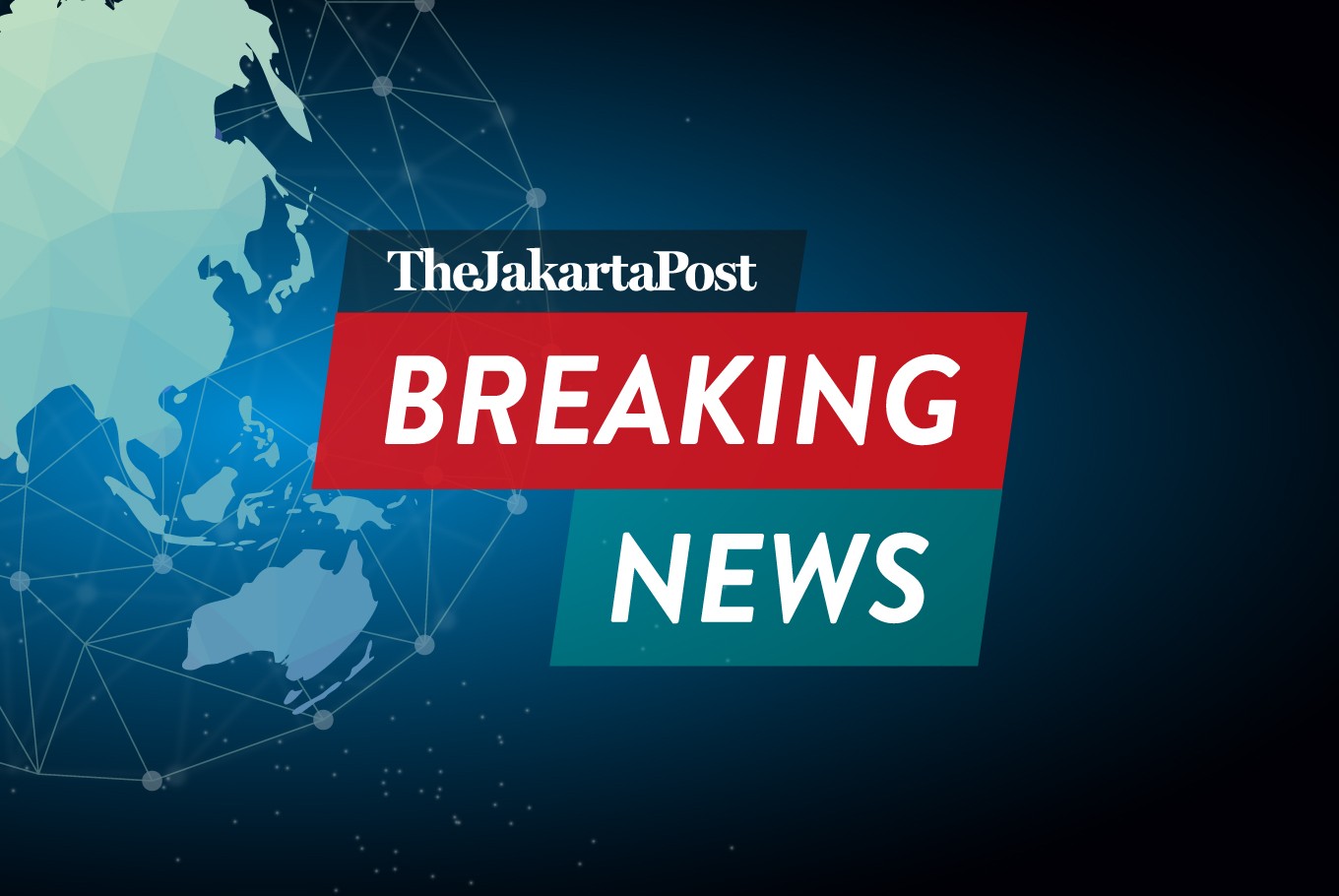Popular Reads
Top Results
Can't find what you're looking for?
View all search resultsPopular Reads
Top Results
Can't find what you're looking for?
View all search resultsBreaking: Indonesia enters first recession since 1998 on 3.49% Q3 contraction
The BPS has announced that the Indonesian economy has entered a recession – its first since 1998 – following a quarter-three contraction of 3.49 percent.
Change text size
Gift Premium Articles
to Anyone
I
ndonesia has officially entered its first recession since the 1998 Asian financial crisis as its economy contracts again in the third quarter, albeit at a slower pace, as the government has allowed more economic activities to resume after easing coronavirus restrictions.
Southeast Asia’s largest economy shrank 3.49 percent on an annual basis in the third quarter, as almost all gross domestic product (GDP) components fell amid the persistent rise in COVID-19 cases, Statistics Indonesia (BPS) announced on Thursday.
The figure is worse than the 3 percent contraction forecast by a Reuters poll of analysts, as well as President Joko “Jokowi” Widodo’s expectation, but is still narrower than the second-quarter contraction of 5.32 percent.
An economy enters a recession if it records negative growth for two consecutive quarters.
According to the BPS, the Indonesian economy rebounded 5.05 percent quarter-on-quarter (qoq) in the period from July to September, in a reversal from the 4.19 percent qoq contraction it recorded in the second quarter.
“Although the economy continued to contract, there was significant improvement in economic activity compared to the second quarter,” BPS head Suhariyanto told reporters in a virtual briefing. “We are hoping that economic activity will further improve in the fourth quarter with loosening social restrictions.”
As regions began to gradually lift the large-scale social restrictions (PSBB) and cities began reopening in June, economic activities started stirring again in the third quarter.
However, economic activities did not reach pre-coronavirus levels, as the continuing rise in COVID-19 cases held up recovery. Jakarta even reinstated the “full” PSBB in September as the rise in daily cases strained its health system, before scaling it back down to the transitional PSBB in October.
The Jakarta Composite Index (JCI) soared 1.85 percent to 5,199.69 as of 11:51 a.m. Western Indonesia Time following the BPS’ announcement, while the rupiah appreciated 0.89 percent against the United States dollar to Rp 14,435.
BPS data shows that household spending, which contributes more than 50 percent of GDP, fell 4.04 percent – slower than the 5.52 percent contraction booked in the second quarter – led by a spending slump in transportation, restaurants and hotels. However, consumer spending in healthcare and education increased in the period from July to September.
Meanwhile, investment shrank 6.48 percent – smaller than the 8.61 percent contraction in April-June – as businesses cut back sharply on their investment in machinery and other products.
Exports and imports respectively plunged 10.82 percent and 21.86 percent, reflecting the downturn in global trade and domestic demand due to the economic fallout from the coronavirus pandemic.
However, government expenditure jumped 9.76 percent in the third quarter to recoup from the second-quarter contraction of 6.9 percent, driven by higher social and capital spending in efforts to fight the impacts of the pandemic.
The government has earmarked Rp 695.2 trillion (US$47 billion) for a stimulus package to revive the economy, which is forecast to shrink between 0.6 percent and 1.7 percent this year.










